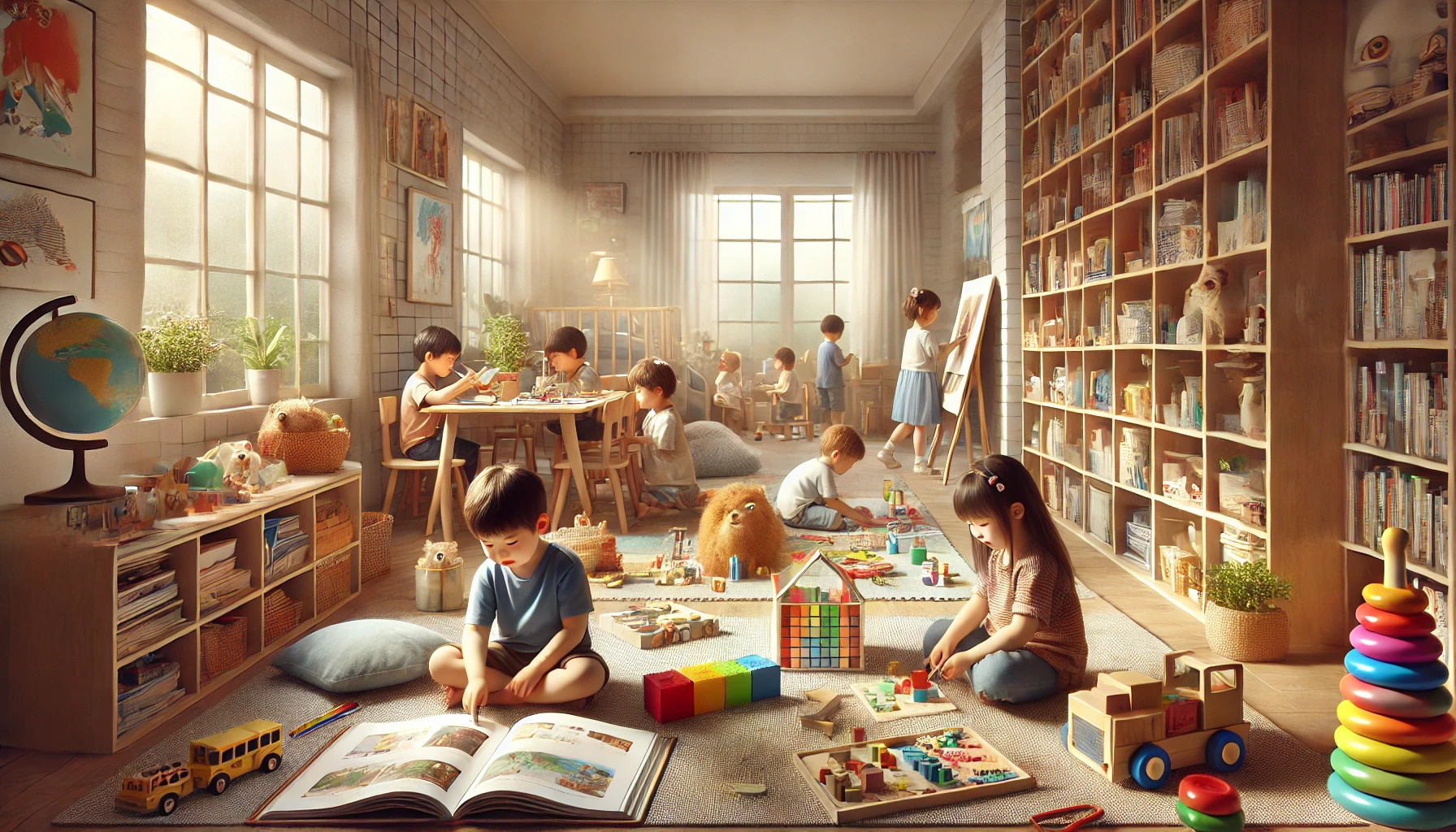Play-based learning is a dynamic approach that stimulates a child’s development in ways traditional methods often fail to achieve. But does it really make a difference? Absolutely. Play-based learning has become a cornerstone of early childhood education, encouraging children to explore and learn in a natural, engaging environment. It taps into the natural curiosity of children, transforming playtime into valuable lessons for life. Below, we’ll uncover the profound benefits of play-based learning, and why it’s an essential aspect of early childhood education.
1. Cognitive Development
Children learn best when they’re actively engaged. Play allows them to explore, question, and experiment. Through role-playing, building blocks, or solving puzzles, young minds develop critical thinking and problem-solving skills. These activities teach them cause and effect, spatial awareness, and logical reasoning—all while having fun. This form of learning lays a strong foundation for more complex subjects later on, such as math and science.
2. Creativity and Imagination
Play-based learning fosters imagination. When children play pretend, they create scenarios and explore new ideas, which fuels creativity. This imaginative process isn’t just for fun; it develops cognitive flexibility. They start understanding abstract concepts, like time or empathy, and can visualize things beyond their current reality. Encouraging creativity in these early stages will help children think outside the box and approach challenges from multiple perspectives as they grow older.
3. Social Skills and Emotional Intelligence
During play, children often interact with their peers, which is crucial for developing social skills. Whether they’re negotiating over which game to play, cooperating to build a fort, or resolving conflicts, play offers opportunities to practice communication, teamwork, and empathy. These interactions help young children understand others’ emotions and respond accordingly, cultivating emotional intelligence. This kind of learning shapes children into well-rounded individuals capable of forming healthy relationships in the future.
4. Physical Development
Play-based activities naturally encourage movement. Whether it’s running, jumping, climbing, or throwing, children are working on their motor skills. Fine motor activities, like drawing or playing with small objects, strengthen hand-eye coordination, while gross motor skills are developed through more vigorous play. These activities not only promote physical fitness but also improve balance, coordination, and body awareness. Encouraging regular physical activity in early childhood sets the stage for a healthy lifestyle as they grow.
5. Language Development
When children play, they talk—often a lot. This chatter, whether it’s negotiating the rules of a game or explaining their imaginative worlds, plays a crucial role in language development. Through play, children expand their vocabulary, improve sentence structure, and learn to express themselves more clearly. Engaging with peers and adults in play also helps them understand the nuances of conversation, such as taking turns and listening, essential components of communication. Along with conversational play, parents and educators should emphasize the importance of reading to enhance vocabulary and comprehension skills.
6. Independence and Decision-Making
In a structured classroom setting, children are often guided by specific instructions. In play-based learning, however, the child is the director. They decide the rules, the characters, and the outcomes, which fosters independence and decision-making skills. These small, everyday decisions, such as choosing to play house or build with blocks, allow children to take control of their environment, make choices, and learn from the consequences of their actions. This autonomy is key to building self-confidence.
7. Resilience and Problem-Solving
Play often involves challenges. Whether it’s figuring out how to solve a puzzle or resolving a disagreement with a playmate, these moments teach resilience. Children learn that not everything goes as planned, and they develop the ability to adapt, think critically, and try new approaches. Over time, they become more comfortable with facing challenges and developing creative solutions, essential skills for handling obstacles later in life.
8. Emotional Regulation
Through play, children experience a range of emotions—joy, frustration, excitement, and disappointment. These experiences allow them to practice emotional regulation. When a tower of blocks falls, they learn to manage their frustration. When they lose a game, they learn to accept disappointment. These small but significant moments help children build the emotional tools needed to navigate the ups and downs of life.
9. Intrinsic Motivation
Play is inherently rewarding, and children engage in it because they enjoy it, not because of external rewards or praise. This fosters intrinsic motivation, which is critical for lifelong learning. When children are motivated to explore and solve problems on their own, they develop a love for learning that will carry them through more formal educational settings and beyond.
10. Developing Patience and Perseverance
Many play activities require patience. Building a complicated structure with blocks, learning to ride a bike, or playing a game with complex rules all take time and effort. Through these activities, children learn that some goals are not achieved instantly. This understanding cultivates perseverance and patience, which are crucial life skills.
11. Tailored Learning for Every Child
One of the biggest advantages of play-based learning is its adaptability. Children learn at different paces and have varying interests. Play-based learning allows each child to engage with activities that cater to their individual needs and strengths. This personalized approach enables children to thrive without the pressure of traditional, one-size-fits-all education methods. It provides opportunities for children who may not excel in typical academic settings to discover their unique talents.
12. Building Confidence and Self-Esteem
In play, there are no right or wrong answers, and this freedom builds confidence. Children are encouraged to take risks, experiment, and try again without fear of failure. Every new skill they master during play contributes to their sense of accomplishment and boosts their self-esteem. This positive self-image is crucial as they move into more structured learning environments where challenges may be more daunting.
13. Learning Through Failure
In play, failure is just a part of the process. Whether it’s a fallen tower or a lost game, children learn that setbacks happen. More importantly, they learn that failure is not final. It’s a stepping stone to figuring out how to try again, building resilience and a growth mindset. These lessons in persistence are essential for success in both academic and personal life.
14. Encouraging a Love for Learning
Perhaps the most valuable aspect of play-based learning is its ability to make learning enjoyable. When children associate learning with fun, they are more likely to be curious, engaged, and eager to explore new subjects. This positive attitude towards learning creates a lifelong love for education, making future challenges seem like opportunities for discovery rather than obstacles.
15. Bridging the Gap Between Home and School
Play-based learning can seamlessly extend from the classroom to the home environment. Parents can support this learning by providing play-based activities at home for kids, such as building with blocks or creative role-playing games. The benefits of play-based learning can be harnessed at home to complement a child’s formal education.
Conclusion
Play-based learning is far more than just fun and games. It shapes the way children think, solve problems, and interact with the world around them. Through play, children develop essential skills that set the foundation for a lifetime of learning, social interactions, and personal growth. By fostering an environment where children can learn through play, parents and educators are helping them develop into well-rounded, confident individuals prepared for future challenges.





